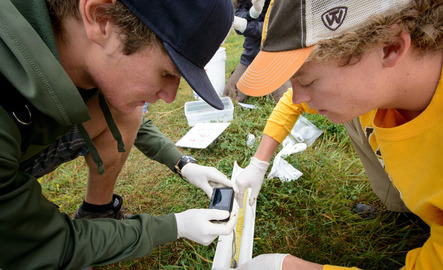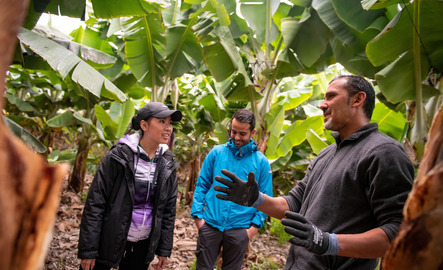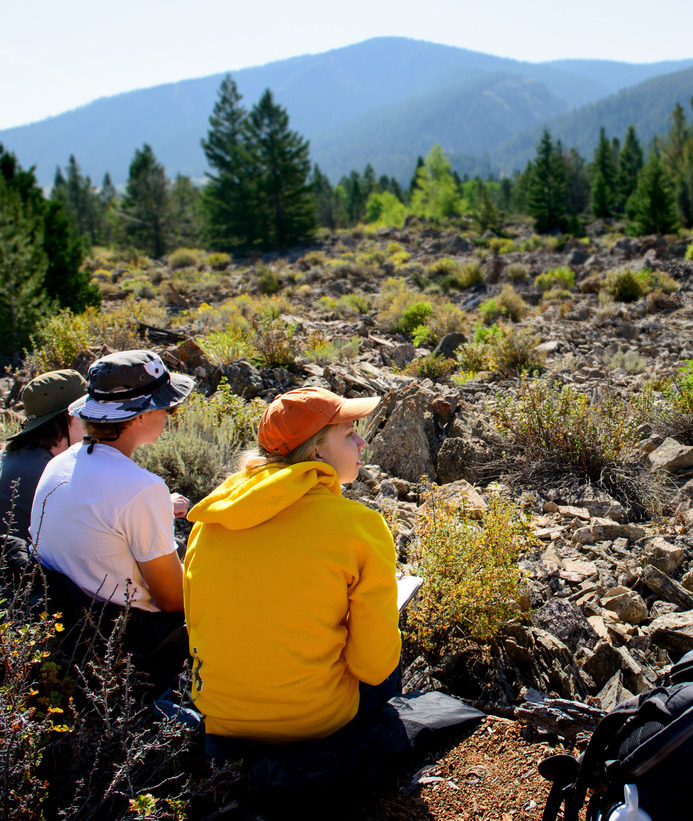About the Environment and Natural Resources Minor
The environment and natural resources minor is a 23+ credit-hour program that is available to any UW graduate student. 20 credit hours are spent taking a wide variety of core courses, including environmental science, problem-solving, environmental assessment and professional development classes. Students additionally select 3+ credit hours of electives.

All students declared in undergraduate Haub School programs, including majors and minors, must earn a C or better in all Haub School program requirements. Students enrolled in multiple Haub School programs must earn 12 credits unique to each program.

What can you do with an environmental studies minor?
An environmental studies minor gives you the knowledge and perspective to tackle today’s biggest environmental challenges—no matter what field you’re in. You’ll explore topics like sustainability, climate change, environmental policy and human impact on the planet, all while building skills in critical thinking and communication. This minor pairs well with majors like biology, political science, business, education or communication, and can lead to careers in environmental education, policy, nonprofit work, sustainability coordination and more. It’s a great way to show future employers or grad schools that you care about the planet and are ready to make a difference.
- Foresters
- Parks Management
- Forest Planning
- Environmental Assessment
- Soil Technician
- Wildlife Specialist
- Geosciences
- Natural Resource Management
- Environmental Consultant
- And more!
Our graduates pursue a wide variety of fulfilling careers, including the following job titles:
- Biological Technician and Outreach Coordinator at the US Fish and Wildlife Service
- Physical Scientist at the US Department of Energy
- Natural Resource Analyst at Wyoming Department of Environmental Quality
- Forests and Communities Program Manager at Washington Conservation Action
- Senior Private Land Conservationist at Pheasants Forever Inc.
- Budget Analyst at the National Park Service
- Associate Research Scientist at Wyoming Migration Initiative, University of Wyoming
- Mountain Guide at Exum Mountain Guides
- Conservation Director at the Sheridan Community Land Trust
- Assistant Professor at the University of Nevada-Reno
An environmental studies minor is worth it if you’re interested in sustainability, environmental issues or making a positive impact through your career. It adds valuable context and critical thinking skills that can enhance almost any major, from science and engineering to business, communication and education. Employers across industries are increasingly looking for people who understand environmental challenges and can help develop sustainable solutions. Whether you want to work in policy, advocacy, education, corporate responsibility or simply bring eco-awareness to your field, this minor helps you stand out as someone ready to make a difference.
Environmental studies is a versatile field that adds value to a wide range of careers focused on sustainability, policy, science and communication. It’s especially useful in industries like environmental consulting, conservation, education, government, nonprofit advocacy, renewable energy and sustainable agriculture. The minor also complements careers in urban planning, public health, environmental law and corporate sustainability, where understanding environmental challenges and solutions is a growing priority. Whether you want to shape policy, protect natural resources or promote sustainability in business or communities, environmental studies gives you the foundation to make a meaningful impact.
Hear from our alumni
Discover how the University of Wyoming's Haub School of Environment and Natural Resources empowers students to become leaders in sustainability and conservation. In this video, alumni share their transformative experiences, highlighting how the Haub School's interdisciplinary programs and hands-on learning opportunities prepared them for impactful careers in environmental fields. From fieldwork in Wyoming's diverse ecosystems to collaborative projects addressing global environmental challenges, hear firsthand how the Haub School fosters critical thinking and real-world problem-solving skills.


